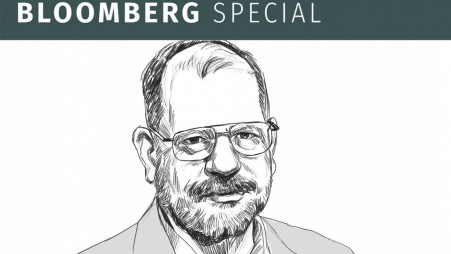Why does the tech workforce lean left?
A common culture is especially important for technology companies, and wokeism provides it

Why are so many employees of major technology companies so left-wing, in particular so invested in woke ideology?
I would like to consider this question without judging whether this is good or bad. I would also like to think about it in abstract terms, separate from any controversies involving any particular tech company, which are variously accused of being biased against the right or the left. And I fully acknowledge that there is a prominent strain of libertarianism in the tech world, though even that tends to be of the more liberal variety.
On to the question: Tech employees are relatively young and well-educated, and younger and better-educated people in the US tend to lean left. But this is more a restatement of the situation than an explanation of it.
One factor in the current political alignment of tech employees is that wealthy people and institutions are usually more willing to invest in symbolic goods, and woke ideology places great emphasis on rhetoric about equality and fairness. The major tech companies have been extremely profitable, and that in turn makes such positioning possible.
Another hypothesis concerns meritocracy. The top tech companies are very meritocratic in that they try to hire the very best programmers, engineers and managers, if only because so much money is at stake and these companies are sufficiently profitable that they can afford top talent.
Yet a meritocracy of intellect does not itself constitute a corporate culture or common set of values for employees. A series of meritocratic hires will come from a variety of backgrounds and cultures; it's not as if they all went to Eton together. Those meritocratic hires thus may want some additional layer of shared culture — and the enterprise of tech, so often based on the manipulation of abstract symbols, does not provide it.
Wokeism does. In fact, this semi-religious function of woke ideology may help explain what many people perceive as the preachy or religious undertones to woke discourse.
You might wonder why this shared culture is left-wing rather than right-wing. Well, given educational polarisation in the US, and that major tech companies are usually located in blue states, it is much easier for a left-leaning common culture to evolve. But the need for common cultural norms reinforces and strengthens what may have initially been a mildly left-leaning set of impulses.
Developing such a common culture is especially important in tech companies, which rely heavily on cooperation. The profitability of a major tech company typically is based not on ownership of unique physical assets, but on the ability of its workers to turn ideas into products. So internal culture will have to be fairly strong — and may tend to strengthen forces that intensify modest ideological proclivities into more extreme belief systems. (To be clear, I am not using the word "extreme" in a normatively negative fashion — nor do I intend the comparison of woke with religion to be normative.)

All of this is happening in a country where religious belief and participation are weakening, and in an industry where employees are not just Christian but Hindu, Muslim, Jewish or have other religions in their family backgrounds. That too boosts the need for an internal quasi-religious substitute, accessible to people of diverse backgrounds.
A related possibility is that employees of the major tech companies — at least many of them — are not as left-leaning as it appears. If the predominant internal corporate culture is left-leaning, and you are paid a lot to cooperate with other people, you might simply "go along to get along." The underlying reality will be a lot more complex.
If you find the left-leaning orientation to be objectionable, it is not enough to simply inveigh against it. Often, attacking a coordinating norm serves to reinforce it, just as persecution can make a religious group stronger and more cohesive.
Instead, you might hope for a different evolution: First, you might want for those companies to become less profitable, thereby decreasing management's interest in symbolic goods. That could help reverse the paradox of such wealthy institutions having such egalitarian rhetoric. You also might wish to see them more invested in traditional hiring networks, which would create a common cultural background separate from the woke ideology. Finally, you might hope that the anonymised expression of actual political views within the company could, over time, make it more acceptable to be "out" as right-wing.
Those are not impossible dreams. Nor is it impossible for tech company employees to become even more left-wing; all it would take for the current trends to accelerate. Because the hard truth is that, for all its religious undertones, wokeism is a market-based ideology. As markets change, it will evolve.
Tyler Cowen is an American economist, columnist and blogger. He is a professor at George Mason University, where he holds the Holbert L. Harris Chair of the economics department.
Disclaimer: This article first appeared on Bloomberg, and is published by special syndication arrangement.



 Keep updated, follow The Business Standard's Google news channel
Keep updated, follow The Business Standard's Google news channel
















